Share
Working at ESO
Are you interested in working in areas of frontline technology and in a stimulating international environment? Do you feel your profile matches our requirements? Learn more about our current vacancies and apply online. Read more..
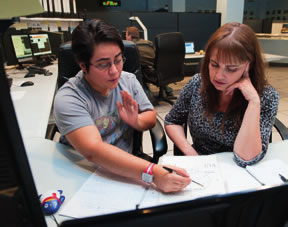
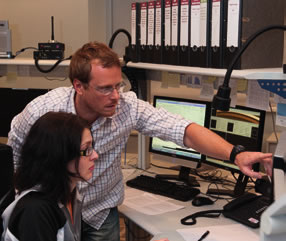

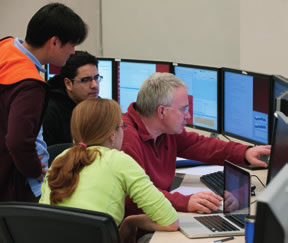
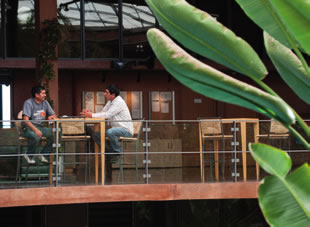
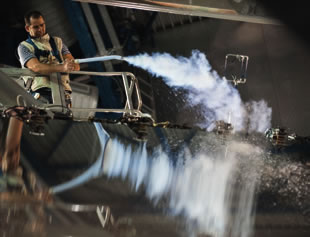
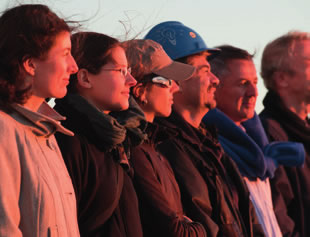
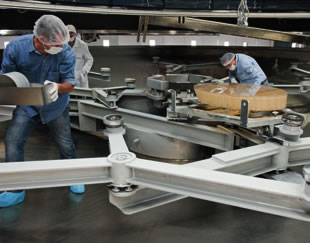
The European Organisation for Astronomical Research in the Southern Hemisphere (ESO) is the foremost intergovernmental astronomy organisation in Europe and the world's most productive ground-based astronomical observatory. ESO carries out an ambitious programme focused on the design, construction and operation of powerful ground-based observing facilities enabling astronomers to make important scientific discoveries.
ESO operates three unique world-class observing sites in northern Chile: La Silla, Paranal and Chajnantor (home to ALMA and APEX), and the ESO Headquarters are located in Garching, near Munich, Germany.
At Paranal, ESO operates the Very Large Telescope, the world's most advanced visible-light astronomical observatory, and will host and operate the southern array of the Cherenkov Telescope Array, the world's largest and most sensitive high energy gamma-ray observatory. ESO is a major partner in ALMA, the largest astronomical project in existence. And on Cerro Armazones, ESO is building the 39-metre Extremely Large Telescope (ELT), which will become "the world's biggest eye on the sky" and whose operations will be fully integrated into the Paranal Observatory.
For its Science Operations Department within the Directorate of the La Silla Paranal Observatory, near Antofagasta, ESO is advertising the position of
Operations Staff Astronomer
Paranal
Deadline 06/05/2019
Paranal Staff Astronomers have the opportunity and challenge to contribute to the operation of the world leading astronomical facility and optimize its scientific output. n the last years, major new systems have complemented our suite of instruments. This includes the VLTI 2nd generation instruments Gravity & Matisse, the Adaptive Optics Facility (AOF) on UT4 and the planet hunter ESPRESSO. ERIS and the MOS facilities MOONS & 4MOST are upcoming future systems at the VLT. Furthermore, preparations for the inclusion of the ELT into Paranal Science Operations have started. The successful candidate will have the opportunity to gain and provide expert knowledge on novel instrumentation and may be given the overall responsibility for an instrument at the Very Large Telescope. Flexibility exists so as to tailor duties and responsibilities according to personal expertise and interests.
Main Duties and Responsibilities:
As part of the operations team, the successful candidate will:
- Contribute to the observing support in both visitor and service mode at Paranal Observatory, including short-term scheduling of observations, calibration of instruments and the assessment of the scientific quality of the astronomical data.
- Work in collaboration with one or several of the teams operating the instruments currently on the mountain to improve their operations and scientific performance and contribute to the operations-readiness of the upcoming generation of VLT(-I) systems.
- Become involved in preparations for the ELT systems.
Depending on skills and experience, the successful candidate will be responsible for some of the systems and/or instruments, for the definition, implementation, optimization and characterization of new observing modes, the set-up of optimized calibration plans, and the integration of these systems with the automatic data reduction pipelines.
The successful candidate will be member of the ESO Science Faculty, with an appointment at the level of Assistant or Associate Astronomer. S/he will be expected and encouraged to actively conduct astronomical research. Up to 105 nights per year are spent at the Observatory carrying out functional duties, in either day-, night- or 'classical' shifts. The rest of the time is spent on scientific research in the ESO office in Santiago. Financial support for scientific trips and stays at other institutions, including in Europe, is provided to all Paranal Operations Astronomers.
Reports to:
The Head of the Paranal Science Operations Department in Chile.
Key Competences and Experience:
We seek a staff astronomer with excellent observing and/or operational experience in areas relevant to Paranal instrumentation. We encourage the expertise exchange with the astronomical community. We therefore also welcome applications of colleagues who consider secondments from their home institutions for a limited period of time.
Candidates with a strong background in state-of-the-art observing techniques available at Paranal will be given particular consideration, including interferometric and adaptive optics observations, but also near/mid-infrared observations, high-spectral resolution, multi-object spectroscopy, time-resolved photometry, etc.
The ideal candidate will be an active researcher and have excellent observation-oriented research records, will be familiar with instrumental, data analysis, archiving and/or observational techniques, and must be conversant with at least one major data reduction package such as python, IRAF or IDL.
Candidates should preferably have a proven ability to identify technical issues and potential risks, and experience with real-time troubleshooting. Very good self-organization and time management is a must, coupled with the ability to prioritize multiple tasks. Communication and interpersonal skill are required, with the ability to adapt and to work efficiently in a multi-cultural environment, both independently and within a team. A strong sense of team spirit is essential.
Qualifications:
Ph.D. in Astronomy, Physics or equivalent
Language Skills:
The position requires a working knowledge of English. A working knowledge of Spanish, or a willingness to learn it, would be advantageous.
Remuneration and Contract:
We offer an attractive remuneration package including a competitive salary (tax free), comprehensive pension scheme and medical, educational and other social benefits, as well as financial help in relocating your family. The contract is for a fixed term duration of three years and is subject to successful completion of the probation period. Under certain conditions there is the possibility of contract extension(s) and the possibility of an indefinite contract, subject to individual performance and organisational requirements. For any further information, please visit ESO's conditions of employment.
Duty Station:
Paranal Observatory (located 120 km south of the city of Antofagasta, Chile).
Career Path:
V
Application:
If you are interested in working in areas of frontline technology and in a stimulating international environment, please visit (http://www.eso.org) for further details. Also check the job webpage of the Paranal Science Operations Department (http://www.eso.org/sci/facilities/paranal/sciops/jobs.html). Applicants are invited to apply online at https://recruitment.eso.org/. Applications must be completed in English and should include a motivation letter, a research statement and a CV (with list of publications). Within your CV, please provide the names and contact details of three persons familiar with your work and willing to provide a recommendation letter upon request. Referees will not be contacted without your prior consent.
The position also requires three letters of reference to be sent to vacchile@eso.org.
Deadline for applications is 6 May 2019.
Interviews are expected to start soon after this date.
No nationality is in principle excluded, however, recruitment preference will be given to nationals of Australia, Austria, Belgium, the Czech Republic, Denmark, Finland, France, Germany, Ireland, Italy, the Netherlands, Poland, Portugal, Spain, Sweden, Switzerland and the United Kingdom irrespective of gender, age, disability, sexual orientation, race or religion.
